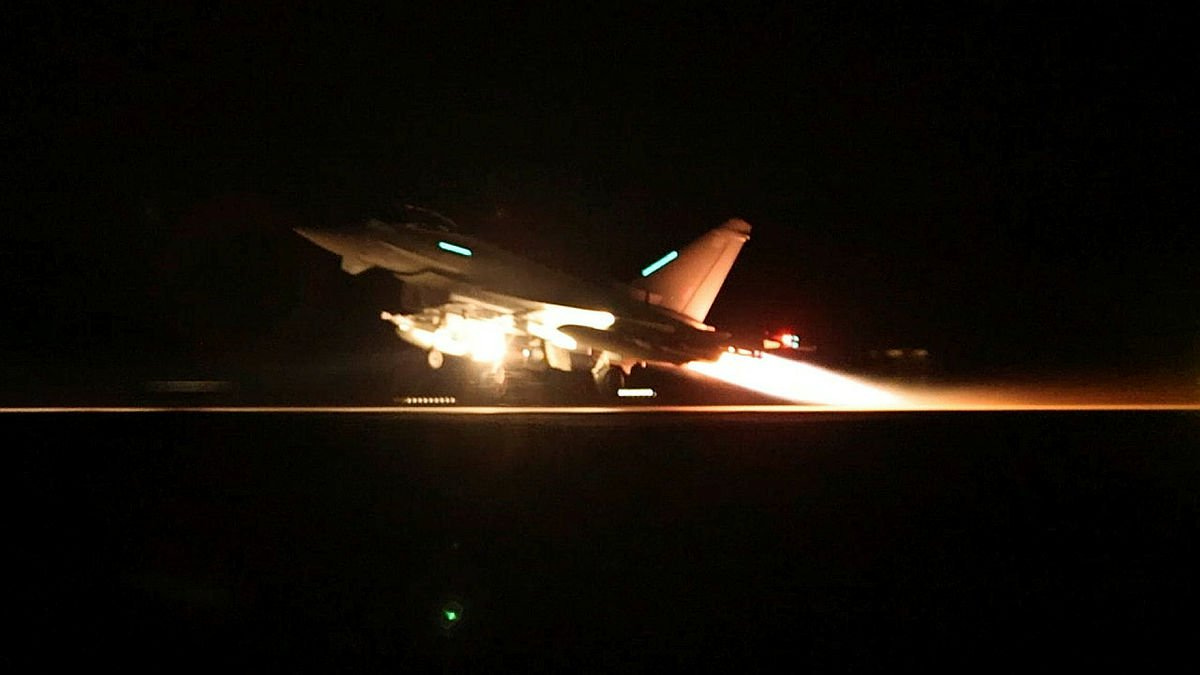UK support for Israel's war goes beyond arms shipments
What role is the UK's Akrotiri Royal Air Force base in Cyprus playing in the War on Gaza?
As a member of the International Court of Justice and the Genocide Convention, the United Kingdom has a legal duty to take measures to stop violations of international humanitarian law and prevent genocide. Furthermore, UK legislation such as the Export Control Act restricts the export of military and dual-use goods and calls on ministers to refuse an export license if there is a “clear risk that items may be used to commit or facilitate a serious violation of international humanitarian law.”
On 2 September the British Foreign Secretary, David Lammy, informed the House of Commons of the clear risk of such violations occurring as a result of actions by Israeli Defence Forces (IDF) in Gaza. After reviewing 350 current export licences to Israel, Lammy announced the suspension of 30 items used by the IDF in the current conflict. This suspension was widely seen as minimal, especially as Lammy excluded parts used for F-35 jets, which are frequently deployed by Israel in Gaza.
While Samuel Perlo-Freeman of the Campaign Against Arms Trade told Al Jazerra the UK’s move was a “cautiously welcome step”, he also highlighted the presence of a “one huge, huge loophole”:
“We had confirmation just today from a Danish NGO Danwatch which got confirmation from the Israeli military that an F-35 was used to drop 3,000-pound bombs on al-Mawasi, a so-called safe zone, on July 19. So saying that you’re going to stop arms that might be used in Gaza except for the F-35 is a bit like saying you’re going vegetarian except for bacon.” - Samuel Perlo-Freeman.
In February, an appeal court in The Hague ordered the Dutch government to cease exporting F-35 parts to Israel due to the clear risk the planes could be involved in violating humanitarian law. In June, human rights groups took the Dutch government back to court, questioned whether the ban was being respected in practice. By banning the export of 30 items, Lammy may be attempting to minimise the impact of similar legal action in the UK.
On 19 July 2024 the International Court of Justice (ICJ) declared Israel’s occupation of the Gaza strip and the West Bank to be unlawful, adding that Israel’s legislation and measures violate the international prohibition on racial segregation and apartheid. Independent human rights experts said the decision should be regarded as “declaratory in nature and binding on Israel and all states supporting the occupation.”
The role of UK military bases: Are they effectively supporting Israel?
In his statement to the Commons, Lammy reiterated his support for Zionism and Israel’s right to self-defence. He also noted that his own actions were weaker than the full arms and oil embargo imposed by Margaret Thatcher on Israel following its invasion of Lebanon in 1982. It is apparent that the British government remained concerned about Israel’s response to this largely symbolic action. The suspension of the 30 arms export licences was still condemned as “shameful” by Israeli Prime Minister Benjamin Netanyahu.
But the UK’s support for Israel's war goes beyond arms shipments.
The UK operates military bases in Cyprus, a colonial relic from the time when Britain ruled Cyprus as a crown colony. As part of the agreement granting Cypriot independence in 1960, the UK retained Akrotiri and Dhekelia as ‘Sovereign Base Areas’, which remain British Overseas Territories. The bases play a critical role in British military operations and signals intelligence, including serving as a staging post for bombing campaigns across the Middle East. Akrotiri is the largest Royal Air Force (RAF) base outside the UK.
In recent years Akrotiri has supported actions in Libya (2011), Iraq (2014) and Syria (2018). Following Israel’s invasion of Gaza in 2023, UK military aircraft have made numerous from flights from Akrotiri to Ben Gurion Airport in Israel. This prompted Declassified UK to question whether these flights were transporting personnel or military equipment to support Israel’s campaign in Gaza. While the UK Ministry of Defence denied transporting “lethal aid for foreign nations”, it refrained from providing detailed information as to the purpose of the flights. Until six months ago, the UK also provided technical assistance for Israeli F-35s at Akrotiri. According to a media report in late February, this assistance has been paused until the end of hostilities in Gaza.
In response to David Lammy’s Commons statement, Independent MP Jeremy Corbyn highlighted the relevance of Akrotiri:
“Will he also explain what role, legally or otherwise, Britain has played in overflying Gaza with surveillance aircraft, and explain the use of RAF Akrotiri as a staging post for aircraft going to Israel, which many people believe are carrying weapons to be used to bomb Gaza?” - Jeremy Corbyn.
Lammy refused to give an answer, stating “I am very comfortable with the support we give to Israel, and as he would expect, I will not comment on operational issues from this dispatch box.”
UK’s wider actions support Israel’s war
On January 12, British jets took off from Akrotiri to bomb Houthis ‘rebels’ in Yemen, as part of a US and UK operation to combat attacks on shipping in the Red Sea. The Houthis attacked vessels linked to Israel as a show of support for Palestinians, pledging to continue until there is a ceasefire in Gaza. Although there have been questions about some of the vessels targeted by the Houthis in the Red Sea, the bombing campaign launched from Akrotiri is widely seen as implicit support for Israel’s actions in Gaza.
Keep reading with a 7-day free trial
Subscribe to Joe Hendren to keep reading this post and get 7 days of free access to the full post archives.




